United States Republican presidential candidate Donald Trump has told Christians that if they vote for him in November, they won't have to do so again.
But one US policy expert argues that this statement is not about dictatorship threats or even policy pledges, but something much more abstract.
At an event organised by the conservative group Turning Point Action in Florida on Friday, Trump told the crowd: "You gotta get out and vote.
"In four years, you don't have to vote again, we'll have it fixed so good you're not going to have to vote."
Trump's remarks were unclear, especially amid an election campaign when his Democratic opponents accused him of threatening democracy.
It also follows his attempts to overturn his 2020 defeat to President Joe Biden, which led to the.
Further comments have raised concerns that he may be a threat to democracy if he wins the 5 November election.
In a Fox News interview in December, Trump said he would be a dictator only on "day one", to close the southern border with Mexico and expand oil drilling. Democrats seized on this comment, but Trump later clarified it as a joke.
During a National Rifle Association (NRA) gathering in May, Trump quipped about serving more than two terms as president.
He referred to Franklin D Roosevelt, the only president to serve more than two terms. However, the two-term limit was added after Roosevelt's presidency.
"You know, FDR, 16 years - almost 16 years - he was four terms. I don't know, are we going to be considered three-term? Or two-term?" Trump asked the NRA crowd.
If Trump wins a second term in the White House, he can only serve four more years under the US Constitution, which limits presidents to two terms.
'Almost making a joke'
David Smith, associate professor of American Politics and Foreign Policy at the United States Studies Centre, University of Sydney, believes Trump wasn't pledging big policy changes or threatening democracy with his remarks.
Instead, he believes Trump was simply promising the triumph of good over evil, aligning with what Christians want to hear.
"Remarkably, Trump is so much more appealing to conservative Christians in the United States than conventional Christian candidates because he isn't promising incremental change or small policy victories.
"He's promising the redemption of America, and he's always hinting that the apocalypse is on the way," he told SBS News.
"I don't see this as a promise of dictatorship. It's more of a promise that if I win, things will be so good, I will completely transform the political landscape so that you won't even have to bother voting again.
"He's almost making a joke out of it."
Diane Winston, author of Righting the American Dream: How the Media Mainstreamed Reagan's Evangelical Vision, says Trump's religious vision, which shapes his politics, is rooted in white Christian nationalism.
"Trump's rhetoric, mainstreamed by the media, portrays 'real' Americans as white Christians. Many of these are men and women fearful that secularists and religious, racial and ethnic minorities want to replace, if not eliminate, them," she wrote in The Conversation in April.
"[Trump] has convinced conservative Americans, especially white evangelicals, that he is 'God's instrument on earth.'"
Distancing himself from conservative policies
However, if you look at policies, Trump is actually de-emphasising all the things Christians want at the moment, Smith added.
"He's trying to avoid that as a topic because he knows it's unpopular. He's also distanced himself from Project 2025 (an initiative organised by the Heritage Foundation promoting conservative policies)."
Despite this, his Christian voter base seems to remain supportive. Since his first campaign for the presidency in 2016, Trump has enjoyed considerable success with Christians, especially evangelical Christians.
According to Pew research conducted in April, more than 80 per cent of white evangelicals would vote for him in November. By contrast, 77 per cent of black Protestant voters said they would vote for Biden over Trump.
Trump has pleased them by appointing conservative, the 1973 ruling that protected the right to abortion at a federal level.
And his campaign rallies tend to open with prayers from local church leaders.
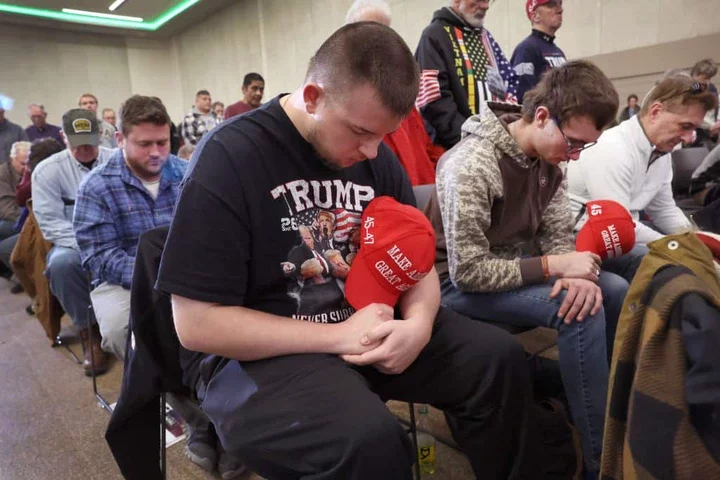
Guests listen to the opening prayer during an Iowa campaign event hosted by former US president Donald Trump in December 2023. Source: Getty / Scott Olson
So why do Christians love Trump?
The answer is simple, said Smith. "They feel that every other Christian politician has failed them."
"They felt that Jimmy Carter had failed them. They felt that George W Bush had failed them because they were too willing to work within the system. They weren't really going to shake things up."
In recent years, liberals have won out on several mortality issues, he added.
"We've gone from Americans being unsure about whether homosexuality itself should even be legal to same-sex marriage legal in every state.
"Then conservatives finally got what they wanted with Roe v Wade being overturned. And then even voters in conservative states started passing constitutional amendments to guarantee abortion rights.
"Conservatives just often feel that they can't win."
Conservatives just often feel that they can't win.
David Smith, expert on American politics and foreign policy at the United States Studies Centre
Well-known American evangelist Franklin Graham, son of the late evangelical Christian Billy Graham and an open supporter of Trump, echoed this narrative in an interview with the Financial Times this week.
"This country has given great freedom to people of faith. And we are losing that a little bit in this country.
"A little bit of our religious freedoms every year. I think they're under attack by people that would be secularist, people that don't believe in God ... and people that hate God. They don't believe God should have any say in daily life."
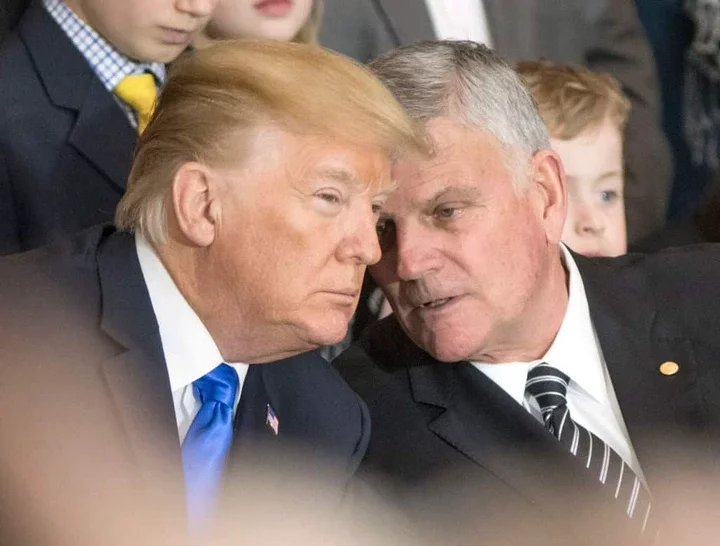
Franklin Graham (right) is an open supporter of Donald Trump. Source: Getty / Pool
Promise of victory
Trump's remarks on Friday pointed to the need for both parties to energise their base voters ahead of what will likely be a closely fought election.
The race has abruptly tightened after and with his vice-president, Kamala Harris, becoming the presumptive Democratic nominee.
Recent opinion polls show Trump's significant lead over Biden has been largely erased since the torch was passed to Harris.
Evangelicals represent loyal support for Trump, so he's acting "combative towards the kind of culture that they hate" while making "enormous promises to save the country", Smith said.
"It's really about the idea of a very, very big victory that goes beyond anything to do with just policy," he said.
"Victory is the most important narrative of Christianity. Jesus triumphed over death itself, and this is what a lot of Christians are thinking of at the moment when they see.
"Christians see much religious meaning in Trump, now more than ever."

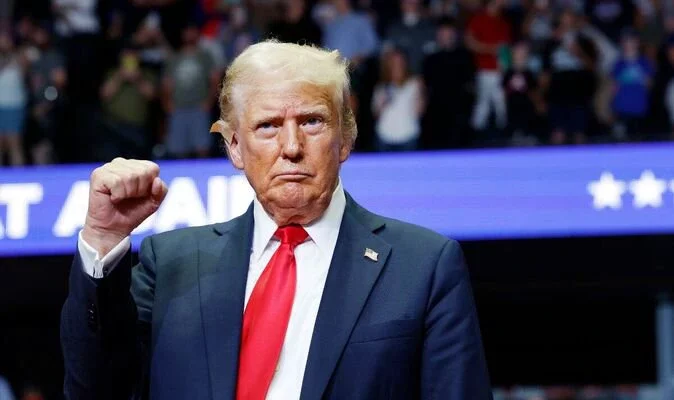
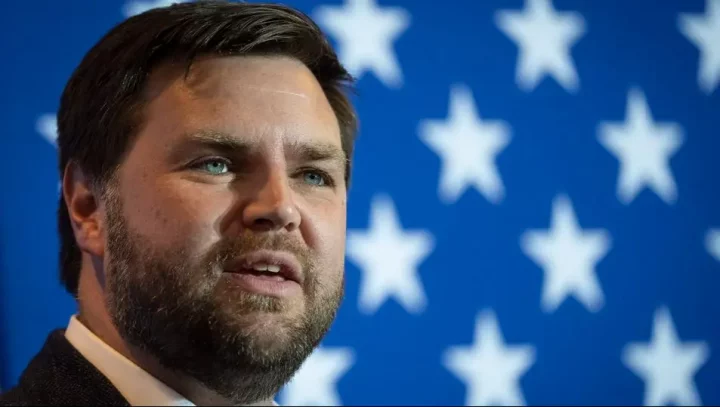
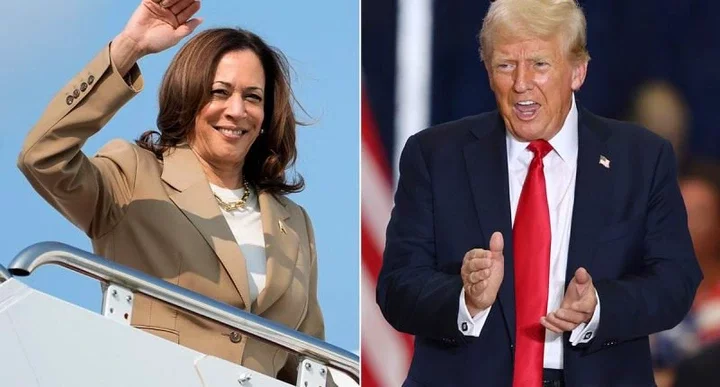
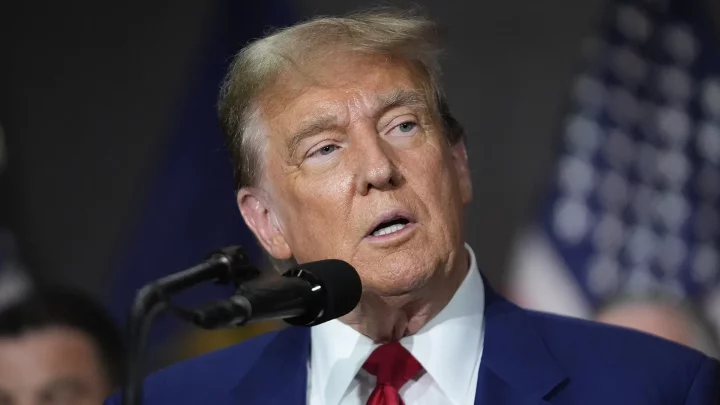
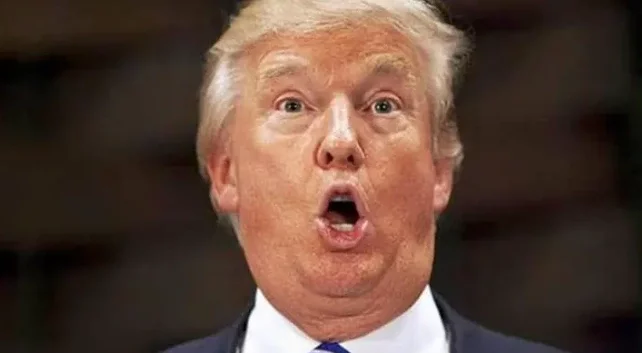


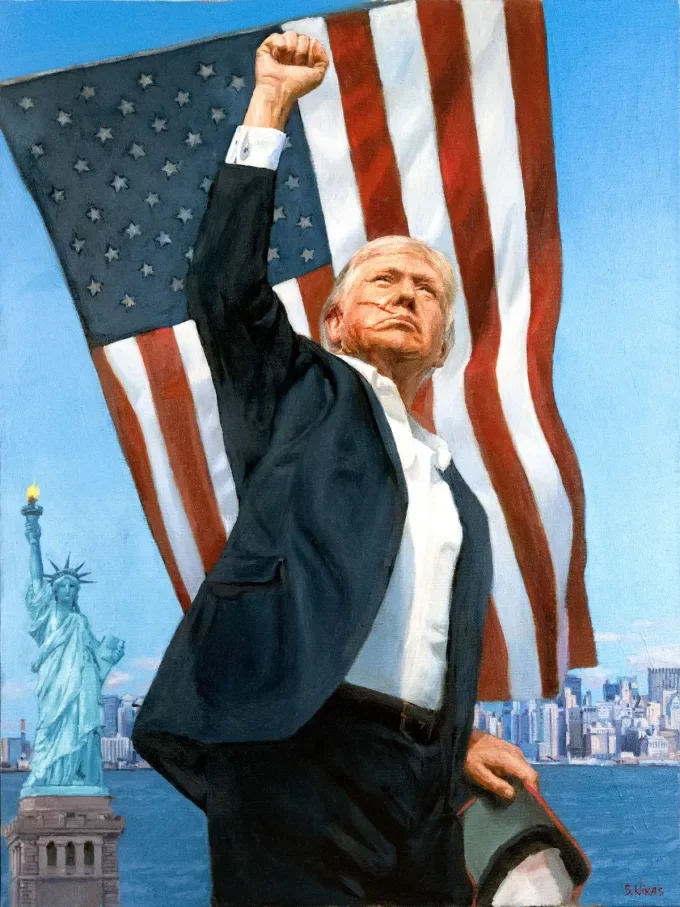


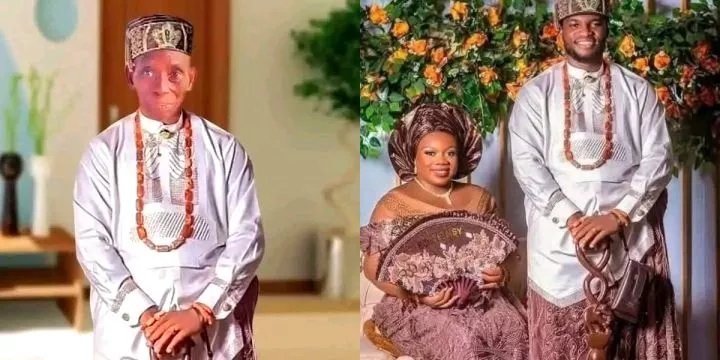





Comments